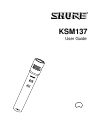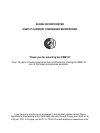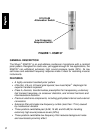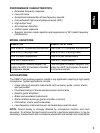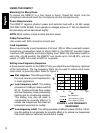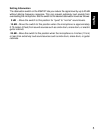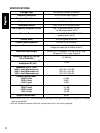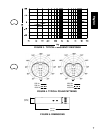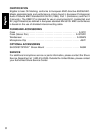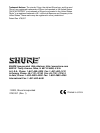
4
USING THE KSM137
Mounting the Microphone
To secure the KSM137 to a floor stand or boom, thread the mount onto the
microphone stand and insert the microphone into the microphone clip.
Power Requirements
The KSM137 requires phantom power and performs best with a 48 Vdc supply
(IEC-268-15/DIN 45 596). It can operate on voltages as low as 11 Vdc, but headroom
and sensitivity will be decreased slightly.
NOTE: Most modern mixers provide phantom power.
Cable Connections
Use a cable with XLR connectors at each end.
Load Impedance
Shure recommends a load impedance of at least 1000 Ω. When used with modern
microphone preamplifiers rated at about 2500 Ω, the KSM137 provides higher
maximum SPL capability and output clipping level. When the attenuation switch is
set to the –25 dB position, the KSM137 can handle up to 164 dB SPL, and can
output +15 dBV into a load of 5000 Ω or greater.
Setting Low-Frequency Response
A three-position switch on the KSM137 lets you adjust the low frequency response
of the microphone. The low frequency filters can be used to reduce wind noise,
room noise, or proximity effect. Refer to Figure 2.
Flat response. This setting provides
the most natural sound reproduction
in most applicatons.
Low-frequency cutoff. This setting
provides an 18 dB-per-octave cutoff at
80 Hz. It helps eliminate floor rumble
and low-frequency noise produced by
heating and air conditioning systems.
This setting may also be used to
compensate for proximity effect or to
reduce low frequencies that make an
instrument sound dull or muddy.
Low-frequency rolloff. This setting provides a 6 dB-per-octave rolloff at 115 Hz.
Use this setting to compensate for proximity effect or to reduce low frequencies
that could make an instrument sound dull or muddy.
20 100050 100
98765432
+5
0
–10
Hz
dB
Low-Frequency Cutoff
Low-Frequency Rolloff
Flat Response
FIGURE 2. LOW FREQUENCY
RESPONSES



